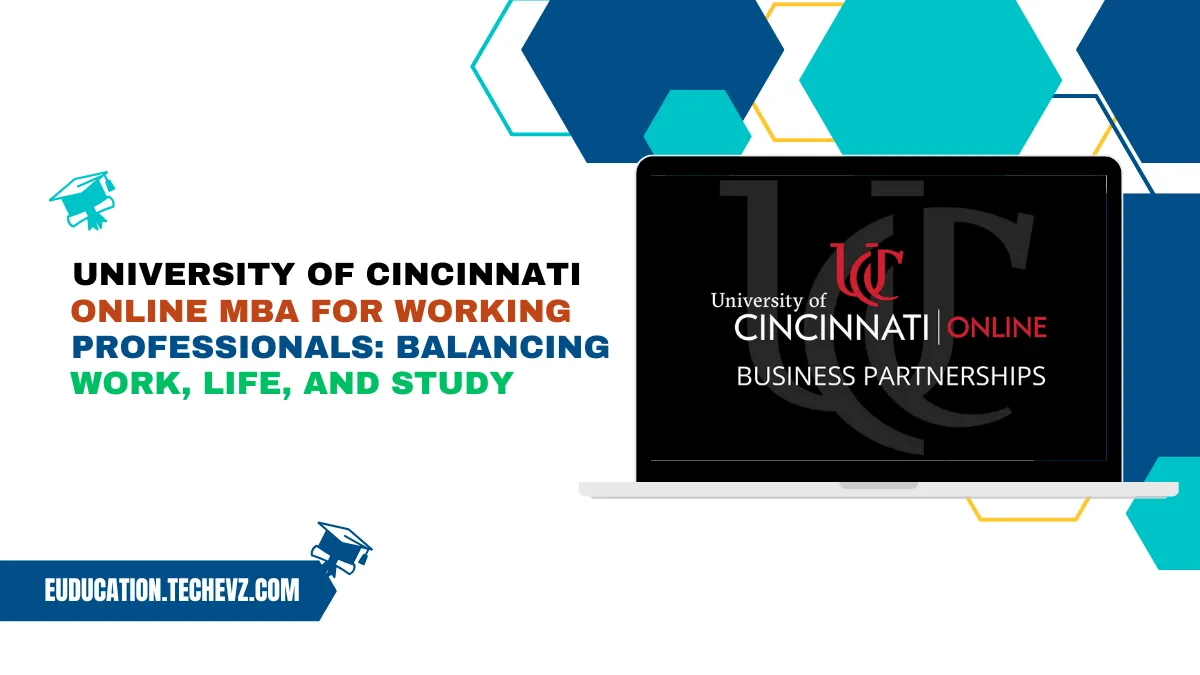The idea of earning an MBA from your laptop, coffee shop, or even your living room is deeply appealing. Flexibility, lower cost, and learning at your own pace are just some of the advantages that have made Online MBAs incredibly popular in the last decade.
But there’s one big question that keeps coming up:
Is an Online MBA worth it if the program isn’t accredited?
In this in-depth guide, we’ll look at what accreditation really means, why it matters (or sometimes doesn’t), and break down the pros, cons, risks, and alternatives.
We’ll also share 4 detailed tables to help you make an informed choice:
- Accredited vs non-accredited online MBAs (key differences)
- Average salary outcomes
- Employer perceptions
- Pros & cons comparison
By the end, you’ll know whether pursuing a non-accredited Online MBA is ever a smart idea—or if it’s a financial risk best avoided.
Let’s get started.
📌 What Does Accreditation Mean in an Online MBA?
Before we debate if it’s worth it, it’s important to know what accreditation actually is.
Accreditation is a formal quality check by an independent body, verifying that a business school meets certain standards of:
- Faculty qualifications
- Curriculum relevance
- Student services
- Graduate outcomes
In business education, three global bodies are widely recognized:
- AACSB (Association to Advance Collegiate Schools of Business) – USA-based, highly prestigious
- AMBA (Association of MBAs) – UK-based, focuses on MBA programs specifically
- EQUIS (European Quality Improvement System) – Europe-based, holistic review of institutions
⚠️ Without accreditation, an MBA may not meet recognized global standards.
📊 Table 1: Accredited vs Non-Accredited Online MBAs – Key Differences
| Factor | Accredited Online MBA | Non-Accredited Online MBA |
|---|---|---|
| Recognition | Widely recognized by employers worldwide | Limited recognition; some employers may reject |
| Faculty | Qualified PhDs, industry experts | Faculty quality may be inconsistent |
| Curriculum | Regularly updated to match industry standards | May be outdated or superficial |
| Networking | Access to alumni, global conferences | Limited or no professional network |
| Tuition fees | $15,000–$100,000+ | Often under $10,000 |
| ROI | Generally higher; better career mobility | Often lower; depends on your effort and brand |
| Financial aid | Eligible for federal aid (in some countries) | Rarely eligible |
✅ Insight: The main trade-off is cost vs credibility.
🤔 Why Do People Still Choose Non-Accredited Online MBAs?
Despite the drawbacks, non-accredited online MBAs do have an audience. Here’s why:
- Cost savings – Programs may cost under $5,000–$10,000 compared to $40,000+ for accredited programs.
- No admission barriers – Easier entry without GMAT, essays, or interviews.
- Faster completion – Some programs finish in under 12 months.
- Flexibility – Often fully asynchronous with minimal deadlines.
- Niche options – Unique specializations not offered elsewhere.
But do these benefits outweigh the risks? Let’s look at data.
📉 Table 2: Average Salary Outcomes – Accredited vs Non-Accredited Online MBAs (2025)
| Region | Accredited Online MBA Avg Salary | Non-Accredited Online MBA Avg Salary |
|---|---|---|
| USA | $105,000–$140,000 | $60,000–$85,000 |
| UK | $85,000–$115,000 | $50,000–$75,000 |
| India | ₹15–28 LPA | ₹6–12 LPA |
| UAE / Middle East | $70,000–$100,000 | $40,000–$65,000 |
| Singapore | $90,000–$120,000 | $50,000–$80,000 |
📌 Observation: Non-accredited programs deliver lower average salaries, partly due to weaker employer recognition.
👔 How Employers View Non-Accredited Online MBAs
For many HR managers, accreditation acts as a quick credibility filter.
While a hiring manager may not study your entire transcript, they often check:
- School name recognition
- Accreditation status
- Ranking
Without accreditation:
- Some large firms (especially Fortune 500) may ignore your degree.
- Global opportunities (e.g., in Canada, Singapore, UAE) may be limited.
- Your resume could look weaker compared to candidates from accredited schools.
But in small companies, startups, or family businesses, practical skills and experience often matter more.
📊 Table 3: Employer Perception – Accredited vs Non-Accredited Online MBA Graduates
| Aspect | Accredited MBA Graduates | Non-Accredited MBA Graduates |
|---|---|---|
| Resume shortlisting | Higher probability | Often filtered out |
| Global mobility | Better opportunities | Limited; often local only |
| Promotion chances | Stronger signal of readiness | Depends on performance |
| Career change | More feasible | Harder; may require extra certifications |
✅ Insight: Accreditation can open doors, especially in multinational or competitive industries.
🧩 When Might a Non-Accredited Online MBA Still Make Sense?
There are scenarios where a non-accredited MBA could be practically useful:
- Cost is your main barrier, and you can’t access loans.
- You already have a solid career and want theoretical knowledge.
- You’re in a small family business where brand name matters less.
- You’re combining it with professional certifications (CFA, PMP, CPA).
- You plan to start your own business and don’t need employer validation.
If your goal is pure knowledge or personal growth—not brand power—then an affordable, non-accredited online MBA can still add value.
💰 Table 4: Pros & Cons of Non-Accredited Online MBAs
| Pros | Cons |
|---|---|
| Much lower tuition | Lower employer recognition |
| Open admission | Often outdated curriculum |
| Fast completion | Limited networking |
| Niche topics sometimes available | Ineligible for federal aid/loans in some countries |
| Useful for entrepreneurs or family business | Limited ROI if career switch is the goal |
📌 How to Check if an Online MBA is Accredited
Many programs claim “international accreditation,” but only a few bodies really matter.
- Check if your business school is listed on:
- AACSB: aacsb.edu
- AMBA: associationofmbas.com
- EQUIS: efmdglobal.org
- Watch out for fake accrediting agencies.
- Ask the school for proof, or check the school’s official site.
🧠 Alternatives to Non-Accredited Online MBAs
If the cost of an accredited Online MBA is too high, you still have great options:
- Mini-MBAs from universities like Rutgers, INSEAD, or Harvard Extension.
- MOOCs (Coursera, edX) – e.g., University of Illinois iMBA (AACSB-accredited).
- Specialization certificates (e.g., Wharton’s Business Analytics).
- Professional credentials – PMP, CFA, CPA, Google’s Project Management.
These can cost under $2,000–$5,000, yet still carry global brand recognition.
📚 Real Graduate Stories
- Rajesh (India): Completed a $3,500 non-accredited MBA; helped him manage family textile business better—but couldn’t switch to IT due to employer preference for accredited MBAs.
- Lisa (UK): Chose an accredited Online MBA; got promoted to Product Director in a global firm.
- Ahmed (UAE): Added PMP to a non-accredited MBA; moved from engineer to project manager despite the MBA’s weak brand.
✅ Lesson: Accreditation matters more when you’re changing industries or applying to global firms.
📈 Key Takeaways: Is It Worth It?
- Accreditation = credibility, higher salary, better mobility.
- Non-accredited MBAs: cheaper, faster, but lower ROI and employer value.
- If your career depends on brand power, global jobs, or leadership roles, an accredited program is worth the investment.
- For entrepreneurs or lifelong learners who want skills, a non-accredited program can be useful—if you combine it with certifications.
✅ Conclusion: Choose Strategically
In 2025, an MBA is more than just three letters on your resume. Whether it’s online or on-campus, employers look at accreditation as proof of quality.
If you can afford it, an accredited Online MBA usually pays off with:
- Better salaries
- Global opportunities
- Stronger alumni networks
If you can’t, a non-accredited online MBA can still have limited personal value—but don’t expect it to change your career dramatically.
🎓 Always research, compare, and decide what matches your goals—not just your budget.







